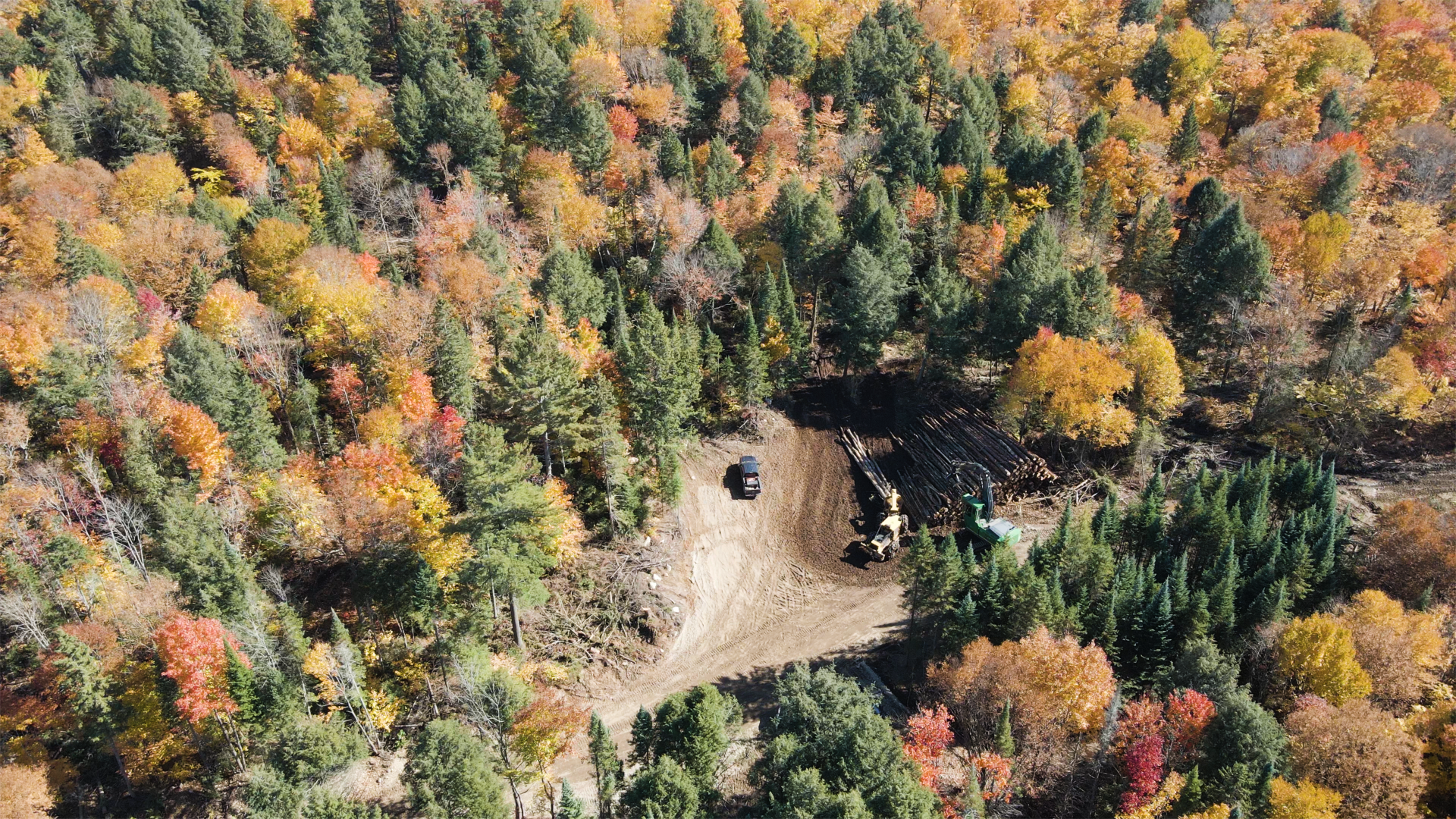
Logging in Algonquin Provincial Park
Algonquin Park is Ontario’s oldest and largest Provincial Park. Since its inception, forestry has been a permitted activity in the Park. Through the intervening years, public perception and legal definitions of Parks have changed to put natural preservation and ecological integrity at the forefront. These changes in perception culminated with the new Ontario Parks Act of 2006.
The first objective of this act is “to permanently protect representative ecosystems, biodiversity and provincially significant elements of Ontario’s natural and cultural heritage and to manage these areas to ensure that ecological integrity is maintained.” The planning and management principal of the act states that “maintenance of ecological integrity shall be the first priority and the restoration of ecological integrity shall be considered.” The first listed prohibited use of Ontario Parks is “commercial timber harvest.”
The single exception is commercial harvesting of timber in Algonquin Provincial Park.
Due to this exception, Algonquin Park is the only Provincial Park in Ontario to allow commercial logging and approximately two-thirds of the park is open to logging. In 2014, the Environmental Commissioner of Ontario, a non-partisan officer of the Legislative Assembly of Ontario charged with upholding the province's Environmental Bill of Rights, recommended that the Ministry of Natural Resources publicly commit to end commercial logging in Algonquin Provincial Park. In the fall of 2018, on the 25th anniversary of the creation of the position, the Ford government eliminated the role and office of the Environmental Commissioner of Ontario. The logging in Algonquin Park continues today.
Algonquin’s Unprotected Old Growth Forests
This film features field research efforts led by Michael Henry, a forest ecologist who focuses on the conservation of old growth forests. Michael has spent over two decades studying and working to conserve Ontario’s old-growth forests, with a particular focus on protecting the old-growth forests in Algonquin Park. Significant tracts of old-growth forest remain unprotected in Algonquin Park— approximately 24,000 hectares of forest over 140 years of age remains in the unprotected recreation / utilization zone.
Old-growth forests are exceptionally valuable ecosystems. They represent some of the largest terrestrial carbon stores on the planet, harbor incredible amounts of biodiversity including rare and endemic species, provide abundant ecological services such as air and water purification, nutrient cycling, erosion control, and pollinator habitat, and provide benefits to human health as well as recreation, education, and research opportunities.
In 2018, Michael helped discover unprotected forest that was over 400 years old in Algonquin Park, which was documented in the Toronto Star. The Ministry of Natural Resources and Forestry responded to this article, stating that these findings would be taken into consideration for the Algonquin Forestry Authority’s 2021-2031 Forest Management Plan. Despite this claim, 127,260 hectares of forest in Algonquin was approved for logging in this 2021-31 plan, and significant tracts of old-growth forest are included in these harvest zones.
Get Involved
The Ontario Wilderness Committee is a non-profit environmental organization dedicated to protecting Canada’s wild spaces and species. Among many other efforts, the Wilderness Committee is deeply invested in protecting Algonquin Park from logging. Check out their action tool to send a letter to the Ontario Government that urges them to make a plan to end logging in Algonquin Park now.

